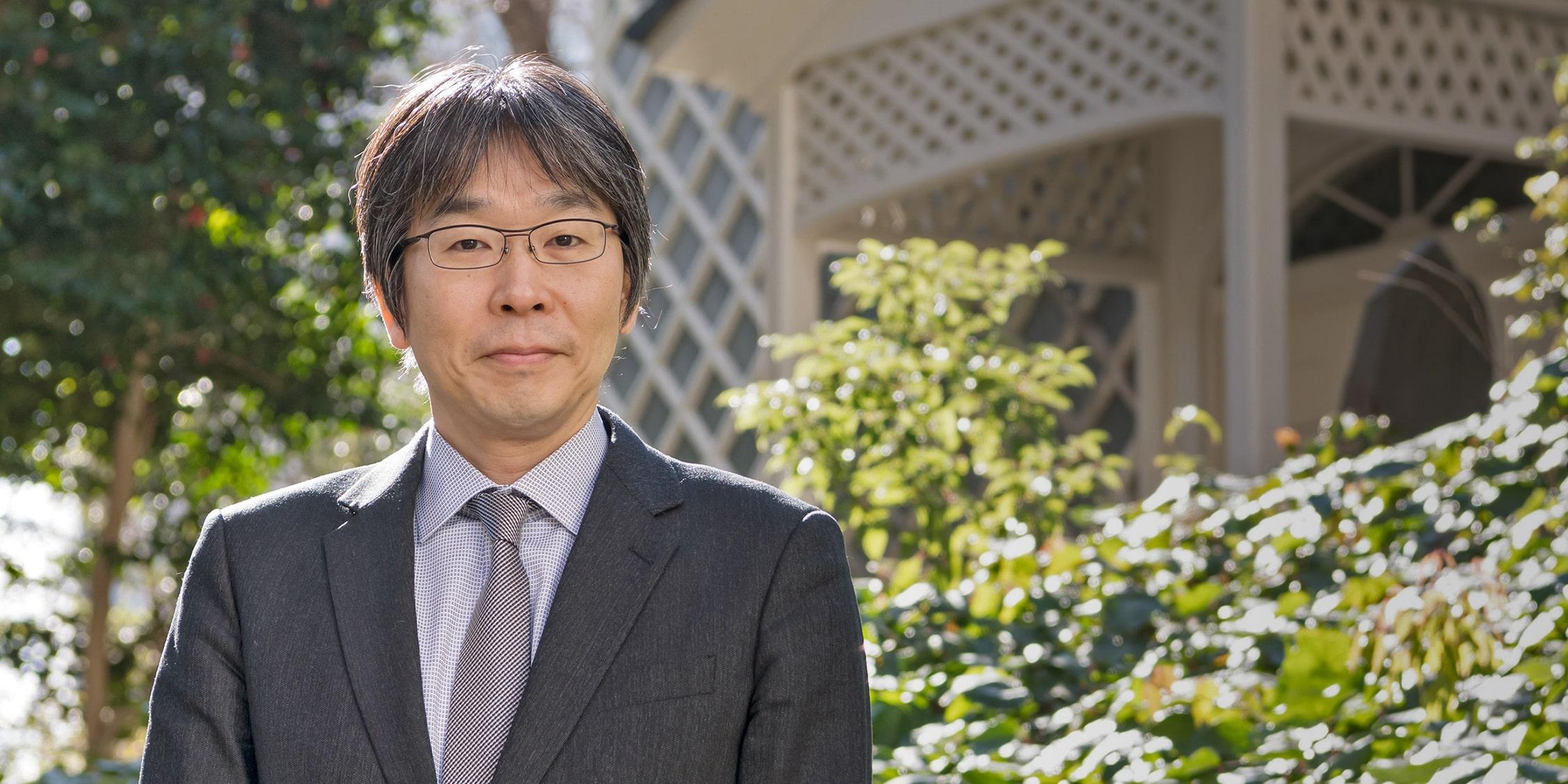Message from the Dean

Understanding changes to go beyond the boundaries! Satoshi Umeda, Dean of the Graduate School of Human Relations
The current age we live in is full of rapid change. With the advent of the Internet and social media, novel ideas and technologies that used to take ten years to take root now can reach the same level in a week or so. In response to these rapid changes, society and people have to change accordingly. While some can keep up with these changes, others struggle, which can lead to great stress. We see this struggle to keep up with the changing times clearly in the loss of the ability to truly trust one another, exacerbated by the prevalence of fake news and fraud. Some instances of change, such as social media and the development of AI, are rapid and easy to see. In contrast, other things such as biological evolution and global warming, are slow and difficult to notice. We are surrounded by all kinds of events with different time scales of change. Both organisms and societies are affected not only by changes that are easy to perceive, but also by changes that not. It is imperative we learn to identify these small changes and develop the flexibility to react appropriately to those situations with the skills to confront and go beyond those problems.
What knowledge and wisdom can you learn and acquire in graduate school? I imagine many answers aiming to deepen your understanding of the research area you are interested in, and acquire the research and experimental skills and techniques specific to your research. If this were the only goal of graduate school, you could probably achieve these things without ever enrolling - by using the internet, going to the library, and attending public lectures. However, in graduate school, you need to set up research questions in real life, and develop the skills to find the best ways to resolve those questions.
Our Graduate School of Human Relations consists of the Departments of Sociology, Psychology, and Education. The professors come from backgrounds in a wide range of research fields, often belonging to several different faculties. You will have access to a wealth of knowledge in your specific area of interest from professors with a broad range of experience and skills. However, never forget that ultimately, you are the one that is responsible for your own research. The two years of the master's program and the three years of the doctoral program are shorter than you may think. Do not squander this precious time - work actively and purposefully . The content of your master's or doctoral thesis must be unique. Something slightly different from the existing body of research study will likely fulfil this requirement, but you should aim for something based on more original ideas. Carefully examine the relevant previous research and consider the problem that needs to be resolved. Your supervisor will be able to provide you with directions on how to tackle the problem. It is your task to come up with the means to find solutions. You will then see the limits of what you can do. I believe that is the starting point for graduate-level research.
Once you reach the starting point, your next goal will be to surpass the boundaries. The fact that you can see the boundaries means that you know what really needs to be done. The boundary may be a realization that "realistically this examination is impossible." However, there are many cases where you will be able to see the path to defying that assumption. Here, you must remove the constraints you have imposed on yourself. It may be a methodological constraint, a psychological constraint, or an economic constraint. Removing constraints is the most crucial requirement for making a 'breakthrough'. Do not become tied down by these constraints. If you are strongly motivated, you can overcome even economic constraints by obtaining research funding. I encourage you all to push the boundaries by all means possible.
In order to carry out these steps you will need an environment in which you are surrounded by colleagues from diverse fields that encourages interdisciplinary research At Keio University, research collaborations between departments are very active, and we have an excellent atmosphere to communicate with specialists in different fields. Our graduate school has many international students from all over the world, and there are are many active academic exchange and double degree agreements with foreign universities. The Master's Course in the Department of Education also supports the recurrent education for incumbent teachers, providing opportunities for collaboration between the fields of research and education. We encourage you to take advantage of this to refine your skills and knowledge.
We have great expectations for you join us and embody the spirit of our motto: "learn together and go beyond together."




